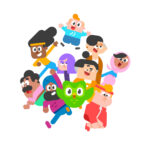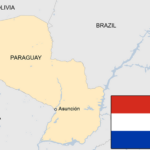There’s a scene in Fried Green Tomatoes that rings so, so true, and is incredibly painful. It’s when the Kathy Bates character, Evelyn, is leaving a grocery store and a young guy walks right into her, pushing her. Her groceries fall out of her hands and when she looks up, he says something to her – I don’t remember what. But it’s rude. She follows him outside and this is the exchange:
Evelyn: Excuse me young man there was no reason for you to be so rude to me back there.
Boy: Get away from me you fat cow!
Evelyn: [stunned and hurt] What did you call me?
Boy at Supermarket : Beat it you old bitch!
Evelyn: Why are you being so mean to me? What have I ever done to you?
And she kneels and cries as she tries to pick up the groceries that have now fallen out of one of the torn bags.
It’s a scene that’s hurt my heart both because I can’t imagine being randomly cruel to someone and because things like that have happened to me. I guess all women and girls have had these moments – where someone, usually a man or someone younger than us, calls us a bitch or does something else to mock us and belittle us, to make us feel as bad as possible, usually with other people around. And they delight in that look of shock, hurt and fear in our eyes.
The same kind of behavior happens online and, unfortunately, when others, especially men, see the behavior, they pile on, gleefully re-sharing the insults and adding their own. The online onslaught can be so overwhelming that it drives women to not only remove themselves from all online spaces but also to do things even more drastic, like quit jobs and relocate, not just to a new home but an entire new city. Or worse.
That scene has been on my mind a lot, per an ugly bought of online and phone harassment last year. I’ve been targeted before, by a man who ran a company that was doing something illegal – I brought media and law enforcement attention to what he was doing and he ended up being forced to close shop, but not before he and a few others wrote some very angry, insulting messages on my blog. But the stuff in 2020 was scary, with phone calls, emails and texts to me, my family, and current and previous clients, as well as videos with insults and threats of lawsuits. It drove me to do as much online research as I could about how to handle online harassment.
Some friends chirped, “Well, I guess you’ll just have to not be online!” Um… it’s my job! If I go offline, what is it you want me to do for a living? Plus, I love being online – I have been online since the 1990s and it’s brought me an incredible amount of joy and lifelong friends, even playing a huge role in me meeting my husband. Also, going offline doesn’t stop the bullying, as that scene from Fried Green Tomatoes illustrates all too well.
When women complain about being harassed, please offer them support. Don’t tell them about how they need to withdraw from online – or onsite – spaces.
I didn’t know Lee MacMillan. I’ve only just learned about her. She was a social media star, documenting her travel adventures and road trips in her van. She had many thousands of followers on Instagram and more than 50,000 subscribers on YouTube. She was gorgeous, and her travel videos and photos are polished, perfectly edited and perfectly filmed and framed, presenting perfect pictures of a very beautiful girl-loving life on the road. She clearly brought joy to many, many people.
But as is openly talked about by her family in online articles, she had also fought depression, and like all of us, whether we admit it or not, was struggling with all of the pressures of the global pandemic, which had taken away her life’s work of travel blogging. In October 2020, she revealed on social media that she had come off her anti-depressants after being on them for several months, and was undergoing cognitive behavioral therapy. In the beautiful tribute written for her Instagram page, it’s noted:
MacMillan was an advocate for mental health. She was candid and open about her own struggles. She was receiving help: from professionals, from family, from friends. She had support around her. She was not alone, she was not trying to fight this alone. And yet she still succumbed to this terrible illness. It is more nuanced than we can, or do, appreciate or understand.
I have no idea if I would have liked Lee MacMillan – I didn’t know her! I have never seen any of her social media before now. But if I had been familiar with her social media accounts and I had decided I didn’t like her based on that, I would never have said a word about her online. I don’t produce social media commentary on someone just because the way they travel isn’t my cup of tea. When I have been negative online – and I most certainly have been negative online – it’s been because I have bothered (usually OUTRAGED) by egregious behavior or profound, even harmful, selfishness.
You aren’t going to see me posting about travel bloggers that don’t travel like I do, unless they do things like ride elephants or pet “orphaned” animals for photos or promote pay-to-volunteer-and-hold-African-orphans. To write blogs and produce videos taunting travel bloggers who don’t choose accommodations or food options that I would, that dress in a way I wouldn’t, or that don’t otherwise make choices like I do, is a fucking waste of time and energy and would just make ME look stupid. I don’t care if I could make a few thousand dollars a year if I did it – that’s a whole level of asshole I’m not going anywhere near. I’d rather be poor and ethical.
Lee MacMillan was hit and killed by an Amtrak train in Santa Barbara last week. She stepped in front of the train on purpose. In addition to the stress of the pandemic and her mental health issues, her father said that she had been struggling with cyberbullying and, in the days before her death, had been the target of an online ‘pile-on’ to belittle her after she was ‘roasted’ in a YouTube video.
I was lucky – my online harasser last year has no following. His videos rarely get views or comments, including the ones about me. His tweets didn’t get retweeted. He had no online army to mobilize against me. Even so, it was jarring to open up social media and see posts mocking my life’s work, even my name.
The person who made Lee MacMillan the target of his derision, who made a video with the sole purpose of gleefully mocking and insulting her, and mobilized others to join in, has deleted all of his social media content. I’ve already found a blogger trying to excuse him – “it was just a roast.” I guess that the roast guy couldn’t take all the insults now being thrown his way – he expects others to, he expects others to say, hey, it’s just a roast, but he slinked away when that same kind of derision he created was focused on him.
Yes, let’s #speakupforlee. Let’s talk about mental health, let’s be there for each other, and let’s talk about the hurtful, harmful consequences of online harassment, especially when it targets women.












Leave a Reply